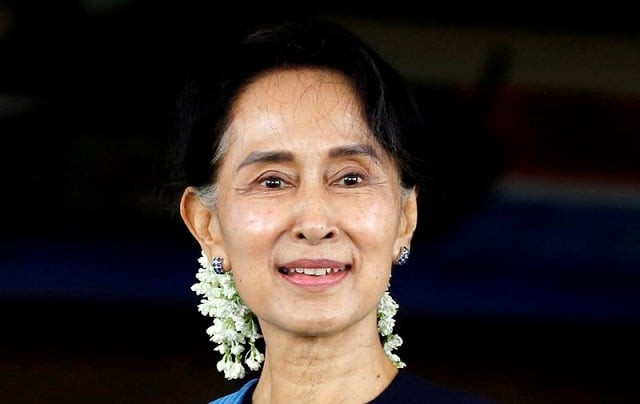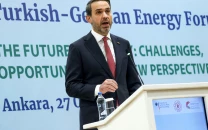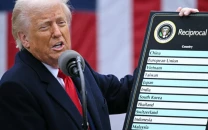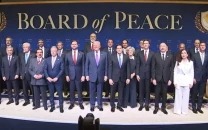Timeline: Events in troubled Myanmar since Suu Kyi's NLD party came to power
Leader Suu Kyi and other figures in the ruling party detained after days of escalating tension with the military

Myanmar’s leader Aung San Suu Kyi and other figures in the ruling party have been detained, a party spokesperson said on Monday, after days of escalating tension with the powerful military had stirred fears of a coup.
Here is a timeline of some key events in Myanmar’s recent turbulent history:
November 2015: The National League for Democracy (NLD) wins a general election by a landslide and Suu Kyi assumes power in a specially created role of state counsellor. She vows to resolve the country’s myriad ethnic conflicts, attract foreign investment and continue reforms started by former general Thein Sein.
October 2016: Rohingya militants attack three police border posts in Rakhine State, killing nine police officers. Myanmar’s military then carry out a security operation, resulting in some 70,000 people leaving the area for neighbouring Bangladesh.
Aug 25, 2017: Rohingya militants launch attacks across Rakhine, triggering a military-led campaign that drives more than 730,000 Rohingya into Bangladesh. The United Nations says the campaign of mass killing, rape, and arson was carried out with “genocidal intent”, which Myanmar denies. Suu Kyi says “terrorists” are behind an “iceberg of misinformation”.
January 2019: New fighting begins in Rakhine between government troops and the Arakan Army (AA), an insurgent group seeking greater regional autonomy that recruits from the mostly Buddhist Rakhine ethnic minority. Suu Kyi urges the army to “crush” the rebels.
Nov 11: Mostly Muslim Gambia files a genocide case against Myanmar at the International Court of Justice (ICJ) over its expulsion of the Rohingya.
Dec 11: Suu Kyi appears at the ICJ in the Hague and rejects accusations of genocide against the Rohingya as “incomplete and misleading” but says war crimes may have been committed.
September 2020: The novel coronavirus sweeps Myanmar, which had previously been mostly spared. The government locks down Yangon, the commercial capital, and other areas but insists a Nov. 8 election will go ahead.
Sept 22: Thomas Andrews, the U.N. human rights investigator to Myanmar, says polls will fail to meet international standards because of the disenfranchisement of hundreds of thousands of Rohingya. Of at least a dozen Rohingya who apply to run as candidates in the election, six are rejected.
Oct 17: Myanmar’s election commission cancels voting in vast swathes of Rakhine State, where fighting with the AA has killed dozens and displaced tens of thousands. Some areas “are not in a position to hold a free and fair election”, the commission says.
Nov 3: Army chief Min Aung Hlaing says the civilian government is making “unacceptable mistakes” in the run-up to the election, the second warning in two days about potential bias in the vote. Suu Kyi calls for calm in a Facebook post and urges voters not to be intimidated.
Nov 9: The NLD claims a resounding victory in the parliamentary election. NLD spokesperson Myo Nyunt says expects the NLD to exceed the total of 390 seats it took in its 2015 landslide win.
Nov 11: The main opposition, the military-backed Union Solidarity and Development Party (USDP), demands a re-run of the election and calls for military help to ensure fairness, alleging irregularities.
Nov 13: The NLD said it would seek to form a government of national unity after official election results showed it had comfortably won enough parliamentary seats to form the next administration.
Jan 26, 2021: Army military spokesperson Brigadier General Zaw Min Tun warns it will “take action” if the election dispute is not settled and declined to rule out staging a coup, asking the election commission to investigate voter lists it said contained discrepancies.
Jan 28: The election commission rejects allegations of vote fraud, saying there were no errors big enough to impact the credibility of the vote.
Jan 30: Myanmar’s military says it will protect and abide by the constitution and act according to law. Pro-military demonstrations are held in several major cities, including Yangon. The next day, the army “categorically denies” impeding the democratic transition in a statement on Facebook.
Feb 1: Suu Kyi, President Win Myint and other senior figures from the ruling party are detained in an early morning raid. Mobile internet and some phone services are disrupted in Yangon and soldiers are seen deployed outside its city hall.



















COMMENTS
Comments are moderated and generally will be posted if they are on-topic and not abusive.
For more information, please see our Comments FAQ